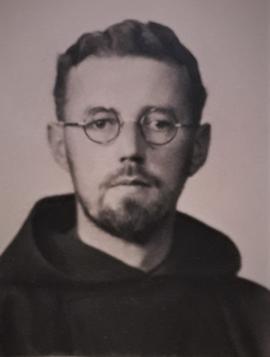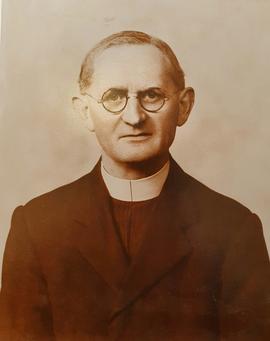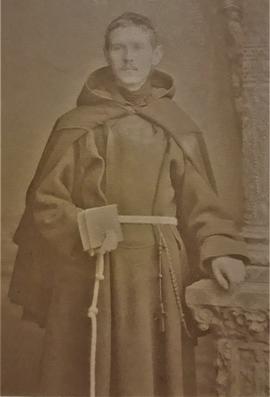Michael Griffin was born in Galway city on 6 October 1906. He joined the Irish Capuchins in Kilkenny in October 1925 and took Anselm as his religious name. Following his ordination to the priesthood in 1933, he served as spiritual director to philosophical students in St. Bonaventure’s University in Cork. On the outbreak of the Second World War, he volunteered for service as a military chaplain with the Royal Air Force in Britain. On his return to Ireland at the end of the conflict, he was assigned to the Capuchin community in Raheny in Dublin where his ministries included chaplaincy duties with the Christian Brothers’ Institute in Baldoyle. In 1950 he volunteered for overseas missionary work in Africa. Initially stationed in Northern Rhodesia (now Zambia), he later undertook parish work in Parrow in Cape Town, South Africa. Ill-health forced his return to Ireland, and he died in Cork on 14 February 1957. He was buried in the cemetery attached to Rochestown Capuchin Friary in County Cork.
Baptismal name: Michael Griffin
Religious name: Fr. Anselm Griffin OFM Cap.
Date of birth: 6 Oct. 1906
Place of birth: Nun’s Island, Galway city
Name of father: John Griffin (Prison Warder)
Name of mother: Honora (Nora) Griffin (née Kelly)
Date of reception into the Capuchin Order: 4 Oct. 1925
Date of first profession: 4 Oct. 1926
Date of final profession: 4 Oct. 1929
Date of ordination (as priest): 25 June 1933 (Letterkenny, County Donegal)
Educational attainments: BA (1929); Licentiate of Sacred Theology (STL), Rome (1935
Missionary activities: Travelled to Northern Rhodesian mission on 2 Feb. 1950.
Date of death: 14 Feb. 1957
Place of death: Bons Secours Hospital, Cork
Place of burial: Cemetery, Rochestown Capuchin Friary, County Cork









